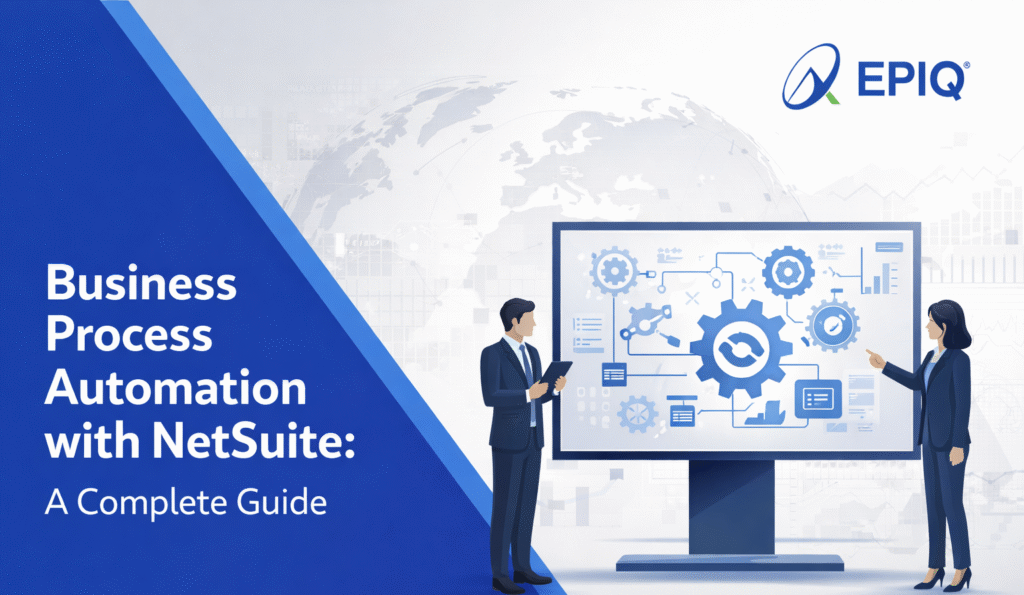NetSuite offers a comprehensive payment processing system that enhances how businesses handle their financial transactions. It enables organizations to accept and process various types of payments, providing flexibility and convenience.
The platform integrates multiple payment options, such as credit cards, ACH transfers, and electronic funds transfers, allowing businesses to accommodate different customer preferences. This adaptability makes it easier for companies to manage both incoming and outgoing payments while maintaining accurate records.
With this integration, businesses benefit from the ability to process payments in real-time, reducing delays and improving cash flow management. The system helps to automate many aspects of the payment process, minimizing the need for manual intervention. This improves efficiency and decreases the likelihood of errors, allowing companies to focus on more strategic financial tasks.
Additionally, NetSuite’s payment framework is designed to work with a range of financial institutions, giving businesses the freedom to work with their preferred banks and providers.
Another key advantage of NetSuite’s payment processing is its ability to enhance financial transparency and reporting. By consolidating all payment data in one system, businesses can generate detailed financial reports that provide insight into cash flow, revenue, and expenses.
This visibility allows decision-makers to make informed choices about budgeting, forecasting, and resource allocation. Overall, NetSuite’s payment processing framework is an essential tool for businesses seeking to optimize their financial operations.
Diverse Payment Processing Options in NetSuite
NetSuite offers various payment processing solutions to simplify the management of financial transactions, from fund capture to payment distribution. By connecting your accounts receivable and accounts payable processes with external systems, NetSuite provides a complete payment infrastructure.
These solutions enhance the efficiency of handling incoming and outgoing payments, making it easier for businesses to manage their cash flow. The platform supports different payment processing activities that can automate and optimize your company’s financial transactions.
Invoice Payments from Accounts Payable
One of the key features in NetSuite’s payment processing suite is the management of outgoing payments through automated invoice processing. This functionality enables businesses to handle vendor payments efficiently by automating payments to suppliers or service providers.
Through technologies like Electronic Funds Transfer (EFT) or Automated Clearing House (ACH), payments are processed quickly, minimizing the risk of late payments.
This not only ensures that suppliers are paid on time but also helps in maintaining a good relationship with them, eliminating the administrative burden of manual payment processing.
With this automation, companies can focus on maintaining accurate financial records while minimizing human error. The system keeps track of payment schedules, ensuring that all outstanding invoices are settled promptly.
Additionally, NetSuite’s integration with external banking systems helps in automating payment processes, ensuring timely transactions that improve cash management. This also ensures that businesses can avoid unnecessary late fees or disruptions in supplier relations, supporting long-term business growth.
Credit Card Account Settlements
Another significant feature is the automated settlement of credit card accounts, which plays a crucial role in customer payments. NetSuite’s credit card account settlement capabilities allow businesses to process and reconcile customer payments efficiently.
Once payments are made, the system automatically matches those transactions against the company’s credit card accounts, reducing the manual effort required for reconciliation. This feature ensures that funds are deposited quickly, improving cash flow and speeding up the financial closing process.
By automating credit card settlement, businesses can also mitigate the risks of reconciliation errors, helping maintain accurate records of revenue. The process of matching payments against invoices is simplified, making it easier to manage customer accounts.
Additionally, this feature can reduce the need for extensive manual audits, as transactions are processed accurately and in real-time. It also improves overall operational efficiency by eliminating repetitive tasks related to credit card processing.
Settlements Against Bank Accounts for Accounts Receivable
NetSuite also facilitates the efficient settlement of payments received from customers against a company’s bank accounts. This feature, essential for managing accounts receivable, allows businesses to match customer payments with the corresponding bank transactions. Automating this reconciliation process enhances financial accuracy and reduces the administrative workload involved in applying payments to the correct invoices. This system reduces errors and ensures timely recognition of revenue.
By integrating bank account settlements into accounts receivable processes, businesses can ensure they maintain a clear understanding of their financial position. The platform’s automation capabilities help ensure that no payments are overlooked or misapplied, allowing for more effective financial reporting. Additionally, this automation frees employees from time-consuming reconciliation tasks, enabling them to focus on more strategic financial planning.
Bank Account Transfers
Managing internal fund transfers between a company’s various bank accounts is another essential feature of NetSuite’s payment processing solutions. This feature allows businesses to transfer funds across their accounts efficiently, ensuring that cash is available in the right accounts when needed. It also helps in balancing accounts to optimize cash flow, enabling businesses to meet their financial obligations without delays.
Automating internal bank transfers ensures that businesses can manage their cash flow more effectively. Funds can be moved quickly from one account to another to cover expenses or capitalize on financial opportunities, allowing for better liquidity management. This feature reduces the risk of overdraft fees or insufficient funds while keeping operations running smoothly.
Webstore Checkout Option
NetSuite’s payment processing system is also integrated with e-commerce platforms, making it possible to manage online transactions efficiently.
This integration allows businesses to process payments directly through their web store, providing customers with a secure and convenient checkout experience. By supporting multiple payment methods and currencies, NetSuite simplifies online revenue collection and recognition.
The webstore checkout option is crucial for businesses that rely on e-commerce. It helps reduce cart abandonment by offering a hassle-free payment process, ensuring that customer payments are processed securely and promptly.
This feature also enables businesses to maintain accurate records of online transactions and integrate those transactions into their financial system, improving overall financial management.
Methods for Capturing Funds in NetSuite
NetSuite offers a variety of methods for capturing payments, allowing businesses to efficiently process transactions across different sales channels. Utilizing many payment methods, NetSuite enables businesses to provide flexible alternatives to their customers while maintaining secure and efficient payment processing.
Such methods encompass both traditional credit card payments and alternative options, giving businesses the ability to cater to a diverse range of customer preferences.
Customer Credit Card Processing
One of the fundamental features of NetSuite’s payment processing framework is the ability to handle customer credit card transactions securely and efficiently. Businesses can process payments made via credit card for both online purchases and in-person sales.
NetSuite uses advanced encryption technology to safeguard customer credit card data, ensuring that sensitive information is protected during transactions. This protects businesses from the risk of fraud and enhances customer trust by ensuring the safety of their personal and financial data.
NetSuite’s system also simplifies the process of settling and reconciling credit card transactions. It automates the posting of payments to the appropriate accounts, reducing the time and effort required for manual reconciliation.
This automated approach enhances operational efficiency, allowing businesses to recognize revenue from sales faster. Additionally, the system integrates credit card processing into the overall financial workflow, ensuring consistency and accuracy in reporting.
Non-Credit Card Payment Options for Web Store Orders
In addition to credit card payments, NetSuite provides support for various non-credit card payment options. Offering a range of payment methods allows businesses to cater to different customer preferences, which can be especially important in global markets where payment habits differ.
Application of alternative payment methods, businesses can expand their customer base and reduce friction in the payment process, thereby improving the overall customer experience.
PayPal Integration
NetSuite’s payment platform supports PayPal, one of the most widely used online payment methods. PayPal is known for its ease of use, security, and global reach, making it a preferred option for many online shoppers.
Businesses that integrate PayPal into their web store can provide clients with a familiar and safe payment option. This integration can lead to higher conversion rates, as many customers feel more comfortable using a payment service they trust.
The integration of PayPal into NetSuite’s payment processing platform allows businesses to handle these transactions with the same level of automation and security as credit card payments.
NetSuite’s system automatically reconciles PayPal transactions, ensuring that they are accurately reflected in the company’s financial records. This level of integration helps businesses manage both credit card and PayPal payments seamlessly, without the need for separate processes.
Electronic Bank Payments
For customers and businesses that prefer direct bank-to-bank transactions, NetSuite offers Electronic Bank Payments as an alternative payment method. This option supports transactions through systems like Direct Debit and SEPA (Single Euro Payments Area) credits, which allow for secure, efficient transfers of funds between banks. By enabling these payment options, businesses can reduce processing fees associated with credit card payments and offer a more streamlined method for transferring funds.
Electronic Bank Payments are particularly useful for businesses that operate in regions where bank transfers are a more common method of payment. This option simplifies the process of collecting and disbursing funds, as it eliminates the need for intermediaries like credit card processors.
Electronic Bank Payments can enhance cash flow management by decreasing transaction times and fees, giving firms faster access to funds and more efficient account settlement.
Expanding Payment Options to Meet Customer Needs
By supporting both traditional credit card transactions and alternative payment methods like PayPal and bank transfers, NetSuite enables businesses to meet the evolving needs of their customers.
Offering a diverse range of payment options enhances the shopping experience, making it easier for customers to complete their transactions using their preferred methods. This flexibility is crucial in today’s competitive online marketplace, where businesses must be responsive to changing consumer preferences.
Including multiple payment methods not only enhances customer satisfaction but also reduces cart abandonment rates, as shoppers are more likely to complete purchases when they can use their preferred payment option.
For businesses, offering these options can improve cash flow, reduce processing costs, and streamline financial management. Ultimately, NetSuite’s flexible payment processing capabilities help businesses operate more efficiently and profitably while providing a better customer experience.
Methods for Disbursing Funds in NetSuite
NetSuite offers a variety of efficient fund disbursement methods to streamline the way businesses manage their financial obligations.
Through automation essential operations, these solutions increase accuracy while reducing administrative labor in payment processing. Whether it’s paying employees or vendors, NetSuite integrates disbursement activities directly with the company’s financial systems, ensuring smooth and timely transactions.
- Direct Deposit for Payroll: One of the most important features in NetSuite’s financial tools is its direct deposit option for payroll disbursement. This allows businesses to electronically transfer wages, salaries, and bonuses directly into employees’ bank accounts without needing physical checks.
The direct deposit function is highly beneficial for both employees and employers. It ensures that employees receive their payments on time, avoiding delays often caused by traditional check issuance. For businesses, it significantly reduces the manual effort involved in payroll processing, freeing up time for more critical financial tasks.
The automation of direct deposits helps ensure compliance with labor laws, reduces errors, and minimizes the risk of fraud associated with paper-based checks.
It also improves record-keeping and reporting capabilities, allowing businesses to easily track their payroll transactions. The reliability and security of direct deposit enhance the overall employee experience, fostering trust and satisfaction with the payroll process.
- Electronic Payments for Vendors: NetSuite also supports electronic payments to vendors, which simplifies the accounts payable process. This method enables businesses to pay their vendors directly from their bank accounts, reducing reliance on paper checks and manual transaction handling.
Electronic payments help speed up the payment cycle, ensuring that vendors are paid promptly. This, in turn, strengthens business relationships by ensuring that companies meet their financial commitments on time.
The automated system reduces the risk of human error, such as incorrect amounts or duplicate payments, and enhances security by minimizing the risks associated with check fraud.
By opting electronic payments, businesses can also benefit from early payment discounts offered by vendors, leading to cost savings. Moreover, the seamless integration of electronic payments into NetSuite’s broader financial management system improves cash flow visibility, making it easier to track outgoing funds.
- Enhancing Payment Efficiency with Third-Party Integrations: While NetSuite provides robust payment processing capabilities, integrating with third-party platforms like AvidXchange and Bill.com further enhances automation and operational efficiency.
These solutions offer additional tools that complement NetSuite’s payment systems, helping businesses improve their accounts payable and receivable workflows.
- AvidXchange: AvidXchange is a powerful tool that automates the entire invoice and payment lifecycle. By integrating AvidXchange with NetSuite, businesses can capture, approve, and pay invoices without requiring manual data entry or paper documents.
This integration reduces the risk of errors and fraud while allowing finance teams to focus on strategic initiatives instead of routine administrative tasks. AvidXchange’s automation features help ensure that payments are executed on time, improving vendor relationships and financial reporting accuracy.
- Bill.com: Bill.com is another valuable tool that enhances NetSuite’s payment processing functions. This platform provides a comprehensive solution for managing both accounts payable and receivable.
Bill.com simplifies financial procedures by automating invoice capture, approval workflows, and electronic payments, thereby increasing transaction speed and security. Its integration with NetSuite ensures that all data is synchronized, keeping records accurate and up-to-date.
The intuitive interface and strong reporting capabilities give finance teams deeper insights into cash flow, enabling better financial decision-making.







